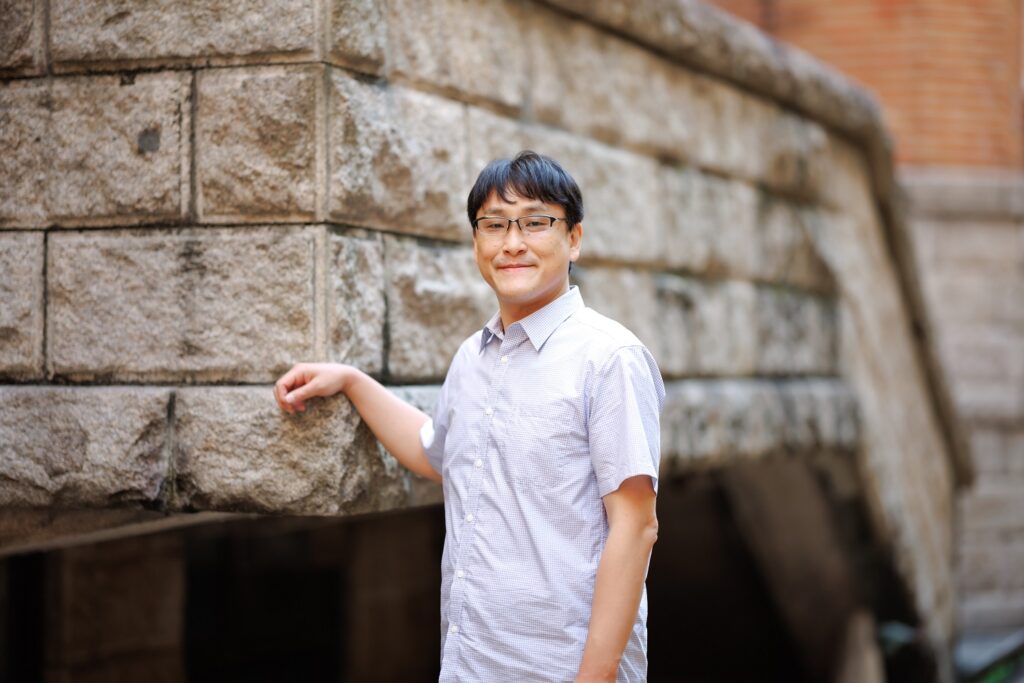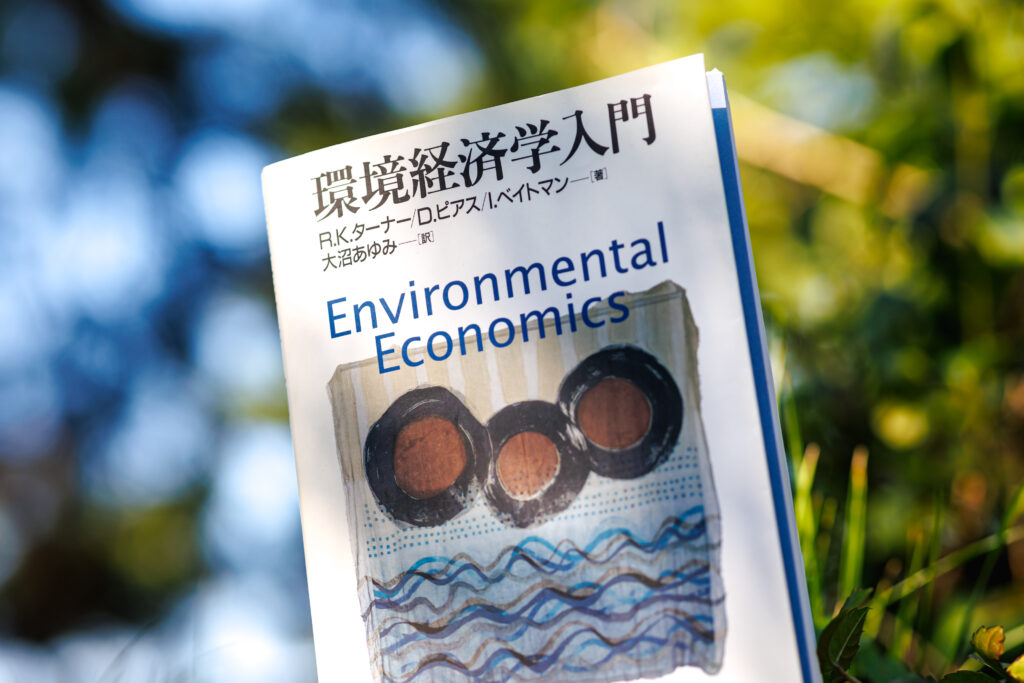
Professor Takahiro Tsuge of the Graduate School of Global Environmental Studies is an expert in environmental economics. In his research, he seeks to answer key questions such as: how can we achieve both environmental conservation and economic growth? and, what sort of approaches are required to realize a sustainable society?
Climate change, deforestation, marine pollution… most of the environmental issues that mankind faces are the result of human economic activities. The market economy established by the Industrial Revolution of the 19th century is predicated on mass consumption, mass production, and mass waste—and it continues to impose a massive burden on the global environment today.
Environmental economics is a relatively new field of study that was born of such realizations. It is characterized by its use of economic theories and analytical methods to identify the causes of environmental problems, and to find solutions for them.
My own research is focused on ways to use economic frameworks to evaluate the economic value of the natural environment. In other words, I seek to measure the diverse value inherent in the natural environment—such as the forests and the seas—through the simple yardstick of money.
Some of you may consider this a cold-hearted approach; and it is by no means easy to arrive at a standard of evaluation that everyone can agree on. However, it is only through such a process that we can discuss the environment and economics within the same framework.
Devising mechanisms that inspire people and companies to act

Let us say that a company has plans to construct a factory in a certain region. Constructing this factory will invariably have some impact on the surrounding natural environment. If the loss in value sustained by this surrounding environment is greater than the economic benefits of constructing the factory, then from a cost-effectiveness perspective we can say that the plans should be halted.
Of course, in practice it is not so simple. Nevertheless, clarifying the economic value provided by the environment empowers us to make better decisions.
Utilizing market mechanisms enables us to create more effective mechanisms for reducing the burden on the environment. If we can promote systems that provide economic incentives for green thinking—such as the “carbon tax” imposed by a number of European nations—then we can surely increase the number of companies that actively engage in environmental measures.
This approach of appealing to economic rationality instead of to morals or ethics is effective in changing human behavior, too. A prime example is the proliferation of reusable shopping bags after levies were imposed on single-use plastic bags.
Indeed, many researchers are attempting to fashion systems that even encourage people who have little interest in environmental issues to engage in more sustainable behavior.
A new project in Amami Oshima
Resolving environmental issues requires knowledge from diverse fields, and for this reason I actively participate in interdisciplinary research projects. In 2022, in collaboration with Japan Airlines, I began working on a joint research project aiming at the regional revitalization of Amami Oshima, an island to the southwest of the Japanese mainland that is a registered UNESCO World Heritage Site.
We are investigating how we can grow the island’s main industry of tourism, while preserving its rich natural, historical, and cultural assets; we are also trying to design a new type of tourist experience, in which tourists and residents revitalize the region while having fun.
At present, we are carrying out fieldwork aimed at realizing a new form of sustainable tourism that contributes to environmental conservation—one that stands in contrast to conventional mass tourism.
The field of environmental economics is still in its infancy, and my own research is no different. There are many questions that remain unanswered. Yet it is also a fact that environmental issues are of the utmost urgency—this can be seen even in Japan, in the increasing frequency of torrential rains here. I intend to use this sense of crisis as motivation in my future research activities.
The book I recommend
“Environmental Economics: An Elementary Introduction”
by R. Kerry Turner, David Pearce, and Ian Bateman, Japanese translation by Ayumi Onuma, Toyo Keizai Inc.

This is the standard introduction to environmental economics all over the world. More than 20 years have passed since it was first published, but its contents remains relevant today. This was the book that showed me the astonishing potential of economic frameworks.
-
Takahiro Tsuge
- Professor
Master’s (Doctoral) Program in Global Environmental Studies
Graduate School of Global Environmental Studies
- Professor
-
Professor Takahiro Tsuge graduated from the Faculty of Economics, Doshisha University, and received his Ph.D. in economics from the Graduate School of Economics, Kobe University. After working as a lecturer at the Faculty of Regional Policy, Takasaki City University of Economics, and as an associate professor then professor at the Faculty of Economics, Konan University, Tsuge was appointed to his current position in 2020.
- Master’s (Doctoral) Program in Global Environmental Studies
Interviewed: September 2022